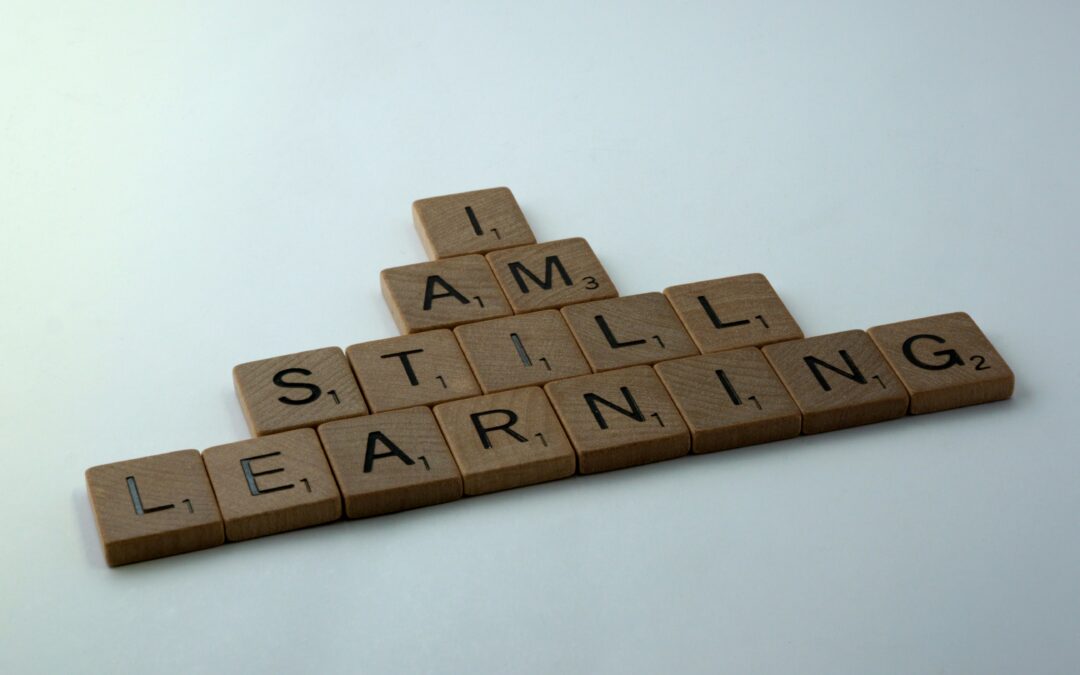
How Skipped Steps Can Make Us Feel Stupid
There are a number of reasons why we can end up feeling stupid at times — or a lot of the time — none of which has anything to do with what the actual capabilities of our minds are. The two biggest causes are:
1) people telling us we’re stupid, and treating us as if it’s true
2) skipped steps in our learning process
In this post, I’m going to focus on the second cause. (I’ve written about cause #1 quite a bit, though there’s a ton that remains to be said about it.)
I’ll begin by explaining what I mean by “skipped steps.” All intellectual understanding — mental development, in other words — constantly involves building blocks that are stacked one on top of another. Grasping each new level is impossible to do well until we have a solid understanding of the previous level. Rushing forward doesn’t work.
I’ll give an example from math, partly because math is an area where so many people end up feeling that their minds don’t work right. One of the more common self-limiting beliefs that I hear is, “I simply can’t do math, I’m just terrible at it.” No, you could do it fine. You just weren’t taught properly.
To learn math you start by learning to count, then to add and subtract. Next you learn about negative numbers. Eventually it’s time to start adding and subtracting with negative numbers — and at this point things start to get dicey. You start facing problems like 3 – (-2) and -4 + (-2) , and at this point some kids are already starting to get nervous.
The thing is that it becomes important not just to get the right answer, but to be able to picture in your mind why it’s the right answer. Sure, you can solve 3 – (-2) (three minus negative two) correctly by memorizing the rules the teacher gives you; for example, if you see two minus signs in a row, turn it into a plus sign; so 3 – (-2) equals 3+2, which equals 5. But what happens is that if you get the correct answers through this kind of mechanical process, but with no real grasp of why, you end up feeling lost farther down the road when being able to picture math in your mind become important.
Unfortunately, a teacher with thirty students in her class can’t possibly keep tabs on whether all the students actually get what’s going on. That’s an impossible expectation of her, it’s not her fault. The best she can do is make sure as many kids as possible get the right answers, and then just hope that some of them actually followed the reasoning behind it.
Let’s continue forward. The next year these students are starting to multiply and divide — and soon are trying to do that with negative numbers. And what happens is that the kids who struggled with adding and subtracting negative numbers are starting to feel stupid. And even some of the kids who knew how to get the right answers last year feel like they’re faking it, because they kind of are.
At this point, math anxiety starts to develop in many kids; they’re starting to panic because they know they’re supposed to understand what’s going on, but they don’t, so they’re trying to fake it as well as they can. And they’re praying that they get enough correct answers to avoid humiliating themselves, Many kids become secretive about what they don’t understand, not admitting it to peers or to adults in order to avoid feeling put-down. Meanwhile they’re internalizing the belief that their minds don’t work right.
Even the kids who have the courage to say, “I just don’t get this,” don’t typically get the help that they need, and they may come to regret having spoken up. The adults start to feel impatient with them and start to suspect that they “just don’t have an aptitude for math.”
There’s nobody really at fault here, except for the high-level policymakers and powerful people who are making it necessary to have thirty kids in a class. Most adults don’t realize that there’s no such thing as a stupid kid, there are just missed steps. It’s up to the adults to figure out which steps got missed and then to go back and fill in the gaps — but this doesn’t often happen. (And even those adults who do recognize the problem may not have the time or the resources to attend to it, the overworked teacher being the prime example.)

I used to do some tutoring in math, and I saw the huge harm done to people’s belief in their own intelligence because of steps that had been skipped. The adult world had completely failed to notice that some of the kid’s building blocks were way askew, and so couldn’t understand why his or her towers kept toppling over. I kept having to say to people, “You’re perfectly capable of doing this math, we just have to cover some earlier stuff first and really pin it down. Then you’ll be fine.”
There is nothing you aren’t capable of learning, whether it’s a new language, a musical instrument, or particle physics. The learning process just has to be broken down into proper steps, starting from the beginning, and the learning has to be guided by teachers who can speak plainly and who aren’t in a rush. And the teachers have to believe you’re capable of learning; if they believe it, they’ll be right.
There are very few geniuses in the world. Geniuses can skip all kinds of steps in a learning process. But the rest of us, the vast majority of the human race, are perfectly smart and capable, we just have to have each building block solidly in place before we can pile the next one on top of it.
Part of the problem is that most teachers, and most writers of books, know so much about their subject that they’ve forgotten what it was like back when they knew very little. Many of the early concepts have become totally obvious to them, so they forget what it was like to be learning the material for the first time. This means in turn that they forget that each concept needs to be broken down into manageable bits; they just feel like, “Why don’t you get this instantly — it’s plain as day!” And to them it is indeed plain as day — but it wasn’t always!
I love to learn music theory — all about chords, scales, melody, and harmony. But every music theory book I’ve read contains at least a few sections that are incomprehensible to me. The writer failed to think through in his or her mind, “How does this concept need to be explained to someone who has never encountered it before?” I find this to be true of virtually every book that strives to teach any subject in the world. Very few writers seem to fully grasp how information is absorbed by someone who is new to an idea.
And when we find a book or a video that’s been put together by someone who is really putting themselves in the position of the learner, really looking at things through our eyes, it’s so wonderful! That level of clarity is entirely possible, and it makes the learner feel smart and capable instead of anxious and clumsy.
You most likely have no interest in learning particle physics, and that’s perfectly fine. My point is that whatever it is that you’d like to learn, stop believing that you can’t do it. Of course you can’t understand it yet — you can’t skip to the end. Start at the beginning and then advocate for yourself; demand patient assistance, insist on written and video materials that actually make sense, and make sure you know all the necessary concepts for going up to the next level before you try to advance.
And if you’re trying to learn something that you’ve failed at in the past, make sure to do it differently this time; don’t set yourself up to be self-blaming again. And doing it differently includes looking carefully at the question of what steps you might have missed on prior attempts.
I’ll finish with an example from my recent life. I grew up playing baseball, and I’ve been back to playing competitive league ball now for almost a decade. But three or four weeks ago a private baseball coach that I’ve hired taught me how to throw a ball. I’m absolutely serious. He showed me basic mechanics that someone should have taught me when I was eight years old — my parents had zero interest in baseball, and it never occurred to our Peewee League coaches that they should perhaps break down the movements involved in throwing. So no one had ever taught me. And I’d gotten by okay all these years, but have never been able to throw as far as most other competitive players can, and have had struggles with my throwing shoulder.
Working with my private coach the other day, I made the longest throws I’ve made in my life — I measured them. So don’t be afraid to start back at the beginning; it’s often the best way to learn.
Photo by Brett Jordan on Unsplash (Scrabble blocks)
Photo by Gaelle Marcel on Unsplash (reader on pile of books)
